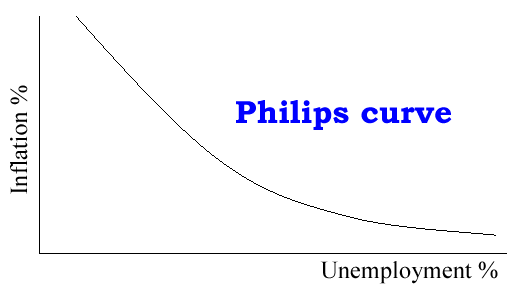Definitely not a Keynesian: Alan Greenspan thinks the Bush tax cuts are fine, and when the nation faces budget deficits he recommends cuts in federal spending or the economy will suffer (according to
this New York Times story). It's part of Greenspan's shrink-the-government ideal, using incoming revenue to determine the size and scope of federal programs. Besides putting the cart before the horse (you should decide what you need to spend, and
then seek revenues), it's decidedly non-Keynesian. But Keynes approach may be right for the current situation. Keynes and his theories got a bad rap in the 1970's when it appeared that inflation was an unavoidable result of government stimulative fiscal policy. Even some Keynesians bought that story, because the data points all seemed to fall on the Philips Curve.

But that was then, this is now. The Philips Curve - at least in the last decade or so - has been inoperative. There are all sorts of reasons for that: increased global competition; better economic forecasting by businesses; dirt-cheap basic commodities; and smarter monetary policy. (All making inflation harder to get started.)
So, faced with a stagnant or declining economy, is a return to Keynesianism in the cards? Not if Greenspan has anything to say about it. But if things get worse, a revival may take place.
In the past, the slur hurled at Democrats was that they wanted to
tax and spend. Tax and spend! Doesn't sound attractive to many ears, but that's because of emphasis. When nothing is going on in the economy, there might be a change in attitude, and we may start hearing a call to
tax and spend.
posted by Quiddity at 9/13/2002 06:48:00 AM